| � |  | |
Don't like ads? Go ad-free with TradeBriefs Premium    
CEO Picks - The best that international journalism has to offer! S1How to Fix the Most Soul-Crushing Meetings - Harvard Business Review (No paywall)   Too many standing meetings are a waste of time. Better meeting techniques, such as distributing agendas, won’t fix a meeting that shouldn’t be happening at all. When it’s not clear who owns a meeting, why people are convening, and how a group’s work contributes to the company’s strategy, more-drastic measures are needed. First, make sure each meeting has a clearly articulated mandate with defined decision rights. Second, design a synchronized meeting cadence. It may seem obvious, but a meeting’s frequency and allotted time must be commensurate with its charter and decision rights. Finally, figure out the right composition. Too often leaders let hierarchy define who comes to a meeting. Instead, only those who have something specific to contribute should be included.
Meetings are notoriously one of organizational life’s most insufferable realities. U.S. companies spend more than $37 billion dollars a year on them. Employees in American companies spend more than one-third of their time in them. And 71% of senior managers view them as unproductive. In one global consumer products company that I work with, my firm’s organizational assessment revealed an unusually intense degree of frustration over how much time was consumed by meetings, leaving “only evenings to do our day jobs,” according to one interviewee. In a meticulous inventory, we calculated the hours spent in meetings by directors and above across the enterprise (a population of about 500). They collectively spent more than 57,000 hours per year in recurring meetings. That’s the equivalent of six and a half years!
Continued here
|
S2S3The Lonely City: Adventures in the Art of Being Alone   “You are born alone. You die alone. The value of the space in between is trust and love,” artist Louise Bourgeois wrote in her diary at the end of a long and illustrious life as she contemplated how solitude enriches creative work. It’s a lovely sentiment, but as empowering as it may be to those willing to embrace solitude, it can be tremendously lonesome-making to those for whom loneliness has contracted the space of trust and love into a suffocating penitentiary. For if in solitude, as Wendell Berry memorably wrote, “one’s inner voices become audible [and] one responds more clearly to other lives,” in loneliness one’s inner scream becomes deafening, deadening, severing any thread of connection to other lives.
How to break free of that prison and reinhabit the space of trust and love is what Olivia Laing explores in The Lonely City: Adventures in the Art of Being Alone (public library) — an extraordinary more-than-memoir; a sort of memoir-plus-plus, partway between Helen MacDonald’s H Is for Hawk and the diary of Virginia Woolf; a lyrical account of wading through a period of self-expatriation, both physical and psychological, in which Laing paints an intimate portrait of loneliness as “a populated place: a city in itself.”
Continued here
|
S4Don't Waste Your Time on Networking Events - Harvard Business Review (No paywall)   Large business networking events are traditional, and the question often is not whether you should attend, but how to make the most of such events when you do attend. Theoretically, they’re one of the best ways to grow your business. The problem is that you’re probably not getting the consistent results you’d like because your success is directly tied to your ability to interact with people looking for the exact same things as you are. Networking can be defined as any activity that increases the value of your network or the value you contribute to it. The best way to do this is to avoid traditional networking events almost entirely. Some alternative strategies are: host your own get-togethers, giving you more control; double date – invite a client to an event, and ask them to bring someone they think you should meet, while you do the same; and reconnect with dormant ties, such as former classmates and any contacts from a previous career.
Large, traditional business networking events are a time-honored institution. They have been a staple of aspiring and successful professionals for so long that most networking advice focuses not on whether you should attend, but on how to make the most of these events when you do attend. In theory, they’re one of the best ways to grow your business.
Continued here
| � |  | |
S5J   Jürgen Klopp is a football manager. That means there is a limit to how much he can teach corporate bosses about how to do their jobs. Managers in firms tend not to be parent substitutes to their charges, envelop people in bear hugs after a successful meeting or use the gegenpressing technique against rivals. But Mr Klopp has drawn back the veil on a crucial ingredient of success in almost every walk of life: energy.
Continued here
|
S6AI Investors Are Wooing Startups With Massive Computing Clusters - Forbes (No paywall)   Last year, entrepreneur-turned-investor Nat Friedman found himself unwittingly becoming a full-time computer chip broker for upstart AI companies. “There were weeks where I spent most of my time finding GPUs for people,” he told Forbes, referencing the graphics processing units which power AI data analysis. “Asking founders what they needed help with, that was problem number one.”
Friedman, the former CEO of Microsoft’s developer platform GitHub, and frequent investing partner Daniel Gross, who sold his first startup to Apple, were calling in so many favors to chip providers that by midyear, they decided they would be better off hiring and team of engineers and spending nine figures upfront to build their own supercomputer. They now run the Andromeda Cluster, their name for several computing stockpiles totaling more than 4,000 GPUs, which they make available for use by companies in their portfolio for a fee below market price. Since its announcement last June, other tech investors have followed suit with offerings to support companies. Index Ventures announced a program last fall to give startups free access to a cluster run by Oracle. Microsoft has set aside several thousand chips for use by startups in its venture arm M12, the startup accelerator Y Combinator and a handful of other early stage funds. Conviction Partners also manages a smaller cluster, founder Sarah Guo told Forbes.
Continued here
| � |  | | | � |  | | | |
S7Make Yourself Immune to Secondhand Stress - Harvard Business Review (No paywall)   Over the past decade, we have learned how our brains are hardwired for emotional contagion. Emotions spread via a wireless network of mirror neurons, which are tiny parts of the brain that allow us to empathize with others and understand what they’re feeling. When you see someone yawn, mirror neurons can activate, making you yawn, in turn. Your brain picks up the fatigue response of someone sitting on the other side of the room. But it’s not just smiles and yawns that spread. We can pick up negativity, stress, and uncertainty like secondhand smoke. Researchers Howard Friedman and Ronald Riggio from the University of California, Riverside found that if someone in your visual field is anxious and highly expressive — either verbally or non-verbally — there’s a high likelihood you’ll experience those emotions as well, negatively impacting your brain’s performance.
Continued here
|
S8How to Give and Receive Compliments at Work - Harvard Business Review (No paywall)   Whether you’re a manager or a team member, giving and receiving compliments plays a major part in forming workplace relationships. Yet research shows that many people feel anxiety over the idea of exchanging compliments, worrying about coming off as a kiss-up or having their compliment misinterpreted. To be better at giving compliments, it’s also important to become better at receiving them. These scenarios and suggestions can help anyone practice the art of giving and receiving compliments.
Whether you are a manager or an individual contributor, giving and receiving compliments plays a critical role in building and maintaining relationships at work. When done well, a compliment is one of the most powerful ways to let someone know that we value and appreciate them. Yet, these seemingly positive interactions can be surprisingly tricky to navigate for both giver and receiver alike. Some of my earliest research, published as “What to Do When Praise Makes You Uncomfortable,” revealed that although the number one thing people associate with being recognized is feeling valued (88%), nearly 70% of people associated embarrassment or discomfort with the process of both giving and receiving.
Continued here
|
S9Find the Coaching in Criticism - Harvard Business Review (No paywall)   Reprint: R1401K Feedback is crucial—but almost everyone, from new hires to C-suite executives, struggles with receiving it. The authors, who have spent 20 years working with managers on difficult conversations, outline six steps that can help you turn feedback into an important, and unthreatening, tool. Know your tendencies. Look for patterns in how you respond. (Do you defend yourself? Do you lash out?) Once you understand your standard operating procedure, you can make better choices about where to go from there. Separate the “what” from the “who.” Your feelings about the messenger might be short-circuiting your ability to learn from the message. Sort toward coaching. Work to hear feedback as well-meant advice, not as an indictment. Unpack the feedback. Resist snap judgments; explore where suggestions are coming from and where they’re going. Request and direct feedback. Don’t wait for a formal review; ask for bite-size pieces of coaching. Experiment. Try following a piece of advice and seeing what happens. Criticism is never easy to take—but learning to pull value from it is essential to your development and success.Continued here
|
S10Rio de Janeiro is betting on Carnival for 'cooler' parties - and a better Brazil   Rita de Cassia Oliveira takes a brief pause to reorganise a display of colourful earrings, before returning to serve a group of tourists. They're picking out shiny shorts and sparkly bikini tops for this year's Carnival street parties. During this period, Oliveira swaps her usual swimwear merchandise for Carnival outfits, and expects February's income to double compared to other months.
"It's the best time of year for those who work on the streets," she says as she arranges pots of glitter at her outdoor stall on a busy Copacabana street corner.
Continued here
|
S11S12The reinvention of a loaded US symbol   For Beyoncé fans, Sunday's Super Bowl was a joyous affair. Appearing in an advert for a mobile phone company, the singer teased new music, before dropping two new singles – Texas Hold 'Em and 16 Carriages – and the release date for her second album in the Renaissance trilogy later that night. Both the singles and their cover art – which show the star decked in two different black cowboy hats – confirmed suspicions that the Houston-born artist would adopt a country theme for her newest release, due on 29 March.
More like this:- Why Beyoncé is reclaiming country music- How hip hop rose to the tops of fashion- How one great sweater can last a lifetime
Continued here
|
S13Another Middle East war would be disastrous for Britain - here's how it can avoid mission creep   Since the beginning of the year the Royal navy and Air Force have joined the US military in launching a series of strikes against Houthi rebels in Yemen. The strikes have been in retaliation for Houthi attacks on shipping – both merchant and naval – in the Red Sea in recent months.
UK government minister Huw Merriman claimed recently that these airstrikes are not just a “one off”. But while the UK and US have demonstrated their resolve in unitedly countering Houthi belligerence and disruption to global trade by blocking up the Red Sea, Merriman’s statement underlines the risk of being inadvertently drawn into a protracted conflict.
Continued here
|
S14'Tarry awhile': how the Black spiritual tradition of waiting expectantly could enrich your approach to Lent   Every year, hundreds of millions of Catholic and Protestant Christians around the world celebrate the season of Lent. For the 40 days between Ash Wednesday and Easter Sunday, observers devote themselves to fasting, prayer and acts of generous giving.
Lots of people, who might not be observant, also take this time to give something up. In 2023, Country Living ran a list of 32 ideas for what you might want to curtail, from “commenting on social media”, “road rage” and “ignoring your health” to “speeding”, “snacking” and “single-use plastic”.
Continued here
|
S15Labour scaling back its   The UK Labour party has announced its intention to reduce its £28 billion green investment pledge to less than £15 billion if elected this year. The political fallout has been been largely focused on the party’s fiscal credibility and leader of the opposition Keir Starmer’s seeming proclivity for U-turns.
A crucial question so far overlooked is what impact the cut would have on public health. The initial pledge included a key home-insulation plan to upgrade 72% – 19m homes – of the UK’s housing stock.
Continued here
|
S16S17Four ways AI could help us respond to climate change - despite how much energy it uses   Advanced AI systems are coming under increasing critcism for how much energy they use. But it’s important to remember that AI could also contribute in various ways to our response to climate change.
Climate change can be broken down into several smaller problems that must be addressed as part of an overarching strategy for adapting to and mitigating it. These include identifying sources of emissions, enhancing the production and use of renewable energy and predicting calamities like floods and fires.
Continued here
|
S18Donkeys are unsung heroes in Ethiopia's humanitarian crisis - and they could do even more with better support  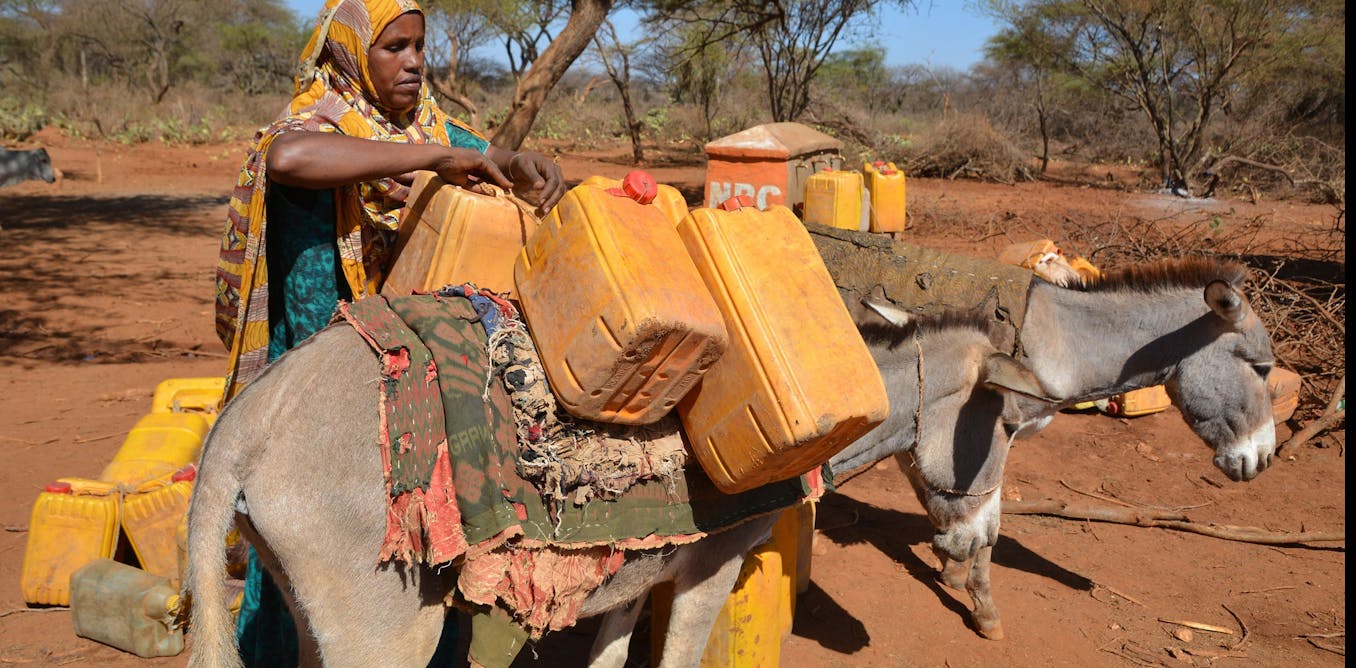 Conflict and drought in the Tigray region of northern Ethiopia has triggered a humanitarian crisis. The Ethiopian government says 16 million people across the country are facing food shortages, with almost half of those suffering emergency or severe levels of food insecurity.
In response to the crisis, the UK has announced £100 million in overseas development aid for essential healthcare services. More than 3 million Ethiopians, including vulnerable women and children, will receive lifesaving help through the programme.
Continued here
|
S19S20The New York Times' AI copyright lawsuit shows that forgiveness might not be better than permission   The New York Times’ (NYT) legal proceedings against OpenAI and Microsoft has opened a new frontier in the ongoing legal challenges brought on by the use of copyrighted data to “train”, or improve generative AI.
There are already a variety of lawsuits against AI companies, including one brought by Getty Images against StabilityAI, which makes the Stable Diffusion online text-to-image generator. Authors George R.R. Martin and John Grisham have also brought legal cases against ChatGPT owner OpenAI over copyright claims. But the NYT case is not “more of the same” because it throws interesting new arguments into the mix.
Continued here
|
S21Artificial intelligence needs to be trained on culturally diverse datasets to avoid bias  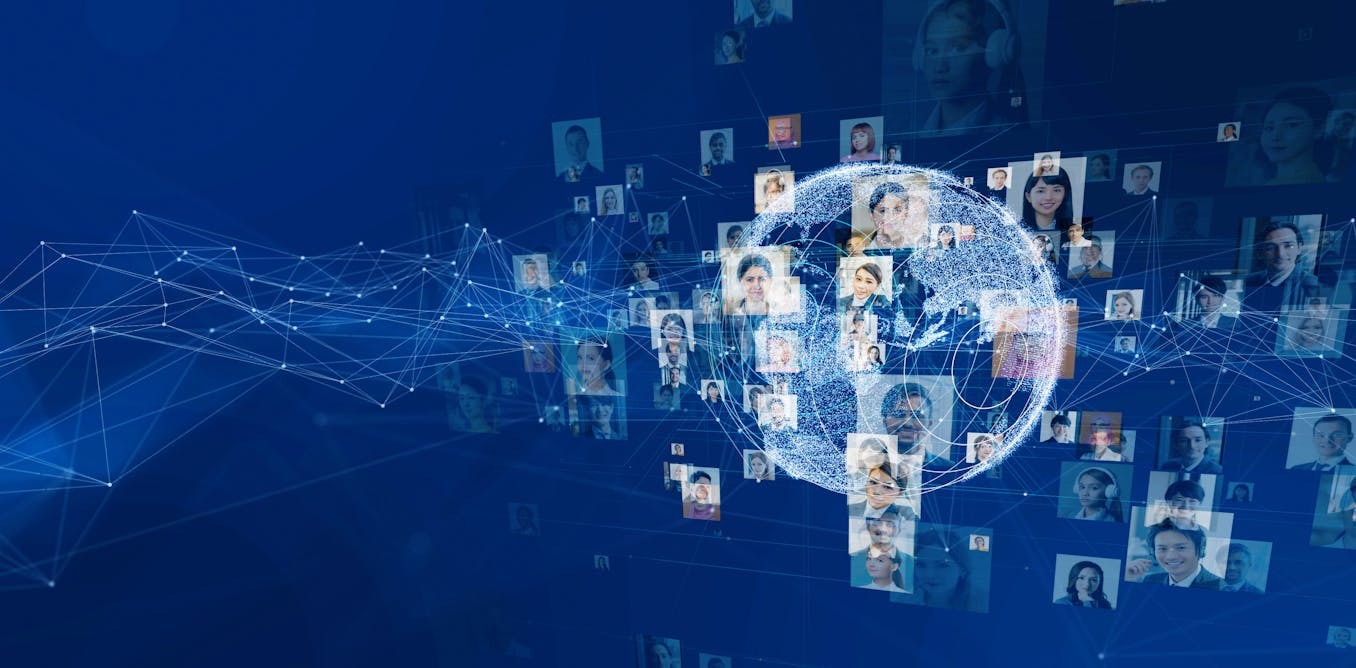 Large language models (LLMs) are deep learning artificial intelligence programs, like OpenAI’s ChatGPT. The capabilities of LLMs have developed into quite a wide range, from writing fluent essays, through coding to creative writing. Millions of people worldwide use LLMs, and it would not be an exaggeration to say these technologies are transforming work, education and society.
LLMs are trained by reading massive amounts of texts and learning to recognize and mimic patterns in the data. This allows them to generate coherent and human-like text on virtually any topic.
Continued here
|
S22Axing the Auckland fuel tax reveals the lack of a real transport plan for NZ's biggest city   The government’s recent announcement that it would bring forward legislation to end the Auckland Regional Fuel Tax (ARFT) in June – four years early – is the third time in 30 years a National-led government has repealed such a tax.
Pulling the plug seems less about the cost of living or misuse of tax revenue than simply sweeping clear the previous administration’s legislation. Transport policies, plans and projects have fallen at an astonishing speed since the coalition government was formed.
Continued here
|
S23'Fortress' conservation policies threaten the food security of rural populations   Barriers created by “fortress conservation” — as in the near-total sectioning off of land for conservation without human interference — are threatening important dietary diversity for the up to 1.5 billion people around the world who rely on wild foods, from bushmeat to wild vegetables and fruit.
Conservation, especially when modelled on notions of “pristine nature” — environments untouched by human influence — can create obstacles by limiting access to important food sources. We must shift from strict fortress conservation to more integrated, sustainable use of rural landscapes if we are to achieve both biodiversity conservation and dietary outcomes.
Continued here
|
S24This Valentine's Day, embrace green as the new colour of love   Valentine’s Day is associated with red and pink, representing passion and romance. But there’s another hue with a secret, sensual history longing for embrace: green.
The colour of nature and fertility, green is deeply connected to love in traditions throughout the world. In these times of conflict, 2024 is the year we should remember what connects rather than divides us, and embrace green as the colour of love.
Continued here
|
S25AI tools produce dazzling results - but do they really have 'intelligence'?   Paul Compton was a founder of Pacific Knowledge Systems, later renamed Beamtree, but no longer has any involvement with the company.
Sam Altman, chief executive of ChatGPT-maker OpenAI, is reportedly trying to find up to US$7 trillion of investment to manufacture the enormous volumes of computer chips he believes the world needs to run artificial intelligence (AI) systems. Altman also recently said the world will need more energy in the AI-saturated future he envisions – so much more that some kind of technological breakthrough like nuclear fusion may be required.
Continued here
|
S265 myths about romance fiction, busted -   Jodi McAlister is the Vice President of the International Association for the Study of Popular Romance.
Jayashree Kamblé serves as the current President of the International Association for the Study of Popular Romance.
Continued here
|
S27S28S29Showing love on Valentine's Day by embracing disability   Valentine’s Day is a time when love and intimacy are celebrated with fervor. Yet, the challenges some face in this regard are not often recognized. In particular, people with disabilities face discrimination and obstacles when seeking love, affection and sexual fulfillment.
People with disabilities often contend with persistent stereotypes when it comes to their love lives. A lack of comprehensive and accessible sex education also leaves people with disabilities ill-equipped to navigate the complexities of relationships and intimacy.
Continued here
|
S30Immigrants do work that might not otherwise get done - bolstering the US economy   Although Congress is failing to pass laws to restrict the number of migrants arriving in the U.S., a majority of Americans – about 6 in 10 – believe there’s an immigration crisis along the Mexico-U.S. border. Politicians who want fewer people to move here often cast those arriving without prior authorization as a burden on the economy.
The U.S. is experiencing a labor market shortage that is likely to last well into the future as the U.S.-born population gets older overall, slowing growth in the number of workers.
Continued here
|
S31S32S33S34S35S36'A blood sport feigning as government': what the ABC's Nemesis taught us about a decade of Coalition rule   ABC-produced post-mortem documentaries on national governments have a distinguished pedigree. The latest instalment, Nemesis, dealing with the Abbott-Turnbull-Morrison years, is the fourth of these series since the pioneering Labor in Power screened in 1993 chronicling the Hawke-Keating era. The Howard Years (2008) and The Killing Season (2015) followed examining respectively the Howard and Rudd-Gillard governments.
The changing tone of the titles of these series is telling. Though Labor in Power and The Howard Years had their fair share of preoccupation with leadership rivalries, they were also concerned with the substance of the governments. By contrast, The Killing Season and Nemesis focus predominantly on the leadership wars that blighted Australian politics between 2007 and 2022.
Continued here
|
S37S38Bushfires in Victoria: how to protect yourself if the air is smoky where you live   Bushfires broke out yesterday in western Victoria during a day of extreme weather conditions across the state. Although authorities have reported the situation is easing, emergency services continue to fight blazes in the Grampians National Park around the towns of Bellfield and Pomonal.
While the air quality in Australia is generally good, events such as bushfires can have a significant effect. Smoke can travel long distances and reduce air quality throughout a city or region.
Continued here
|
S39S40The world's coral reefs are bigger than we thought -   The world’s coral reefs are close to 25% larger than we thought. By using satellite images, machine learning and on-ground knowledge from a global network of people living and working on coral reefs, we found an extra 64,000 square kilometres of coral reefs – an area the size of Ireland.
That brings the total size of the planet’s shallow reefs (meaning 0-20 metres deep) to 348,000 square kilometres – the size of Germany. This figure represents whole coral reef ecosystems, ranging from sandy-bottomed lagoons with a little coral, to coral rubble flats, to living walls of coral.
Continued here
|
 | TradeBriefs Publications are read by over 10,00,000 Industry Executives |



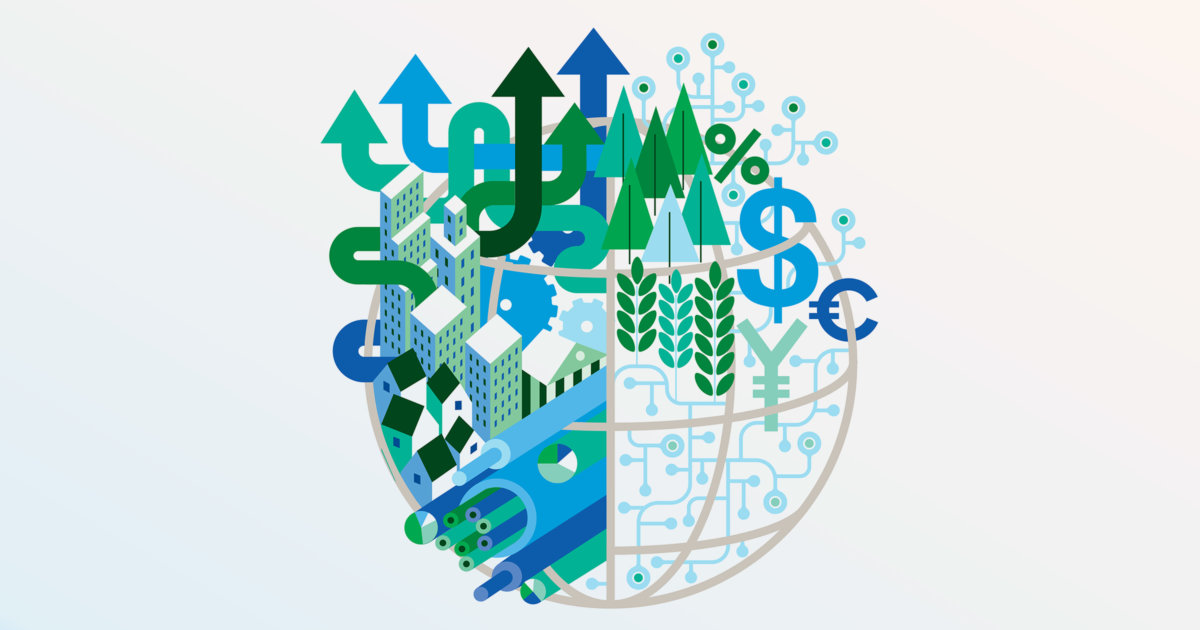
































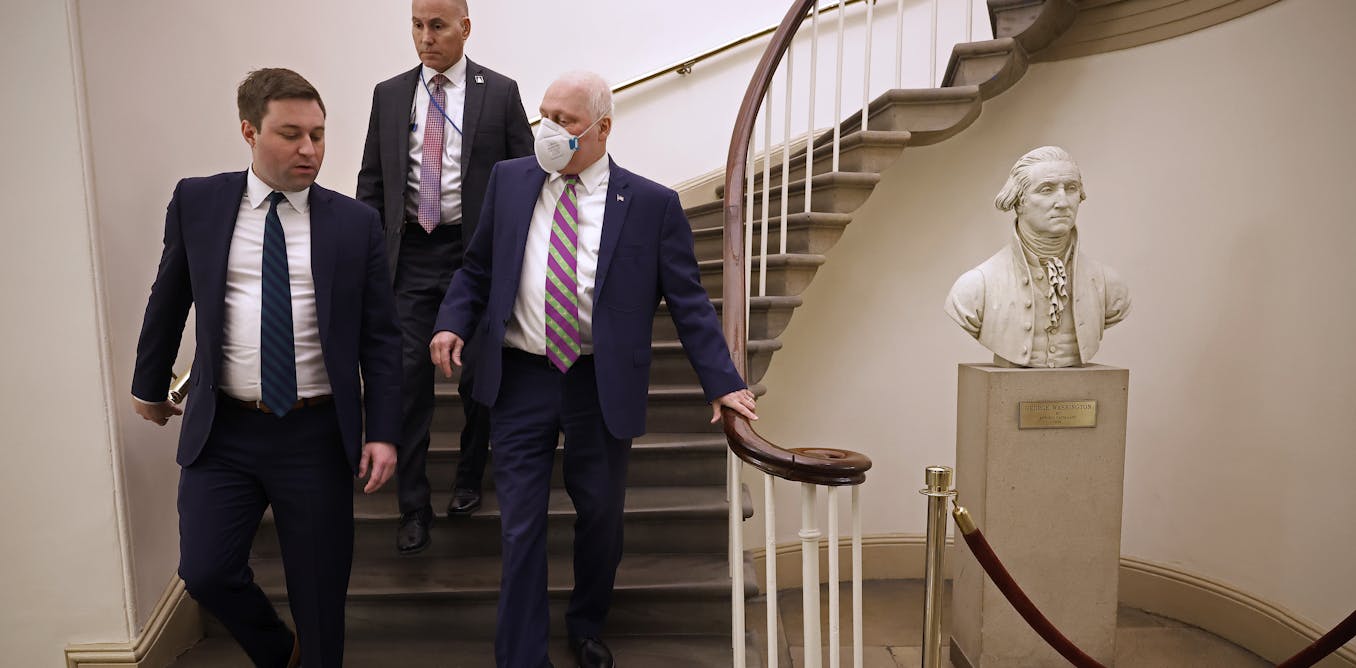

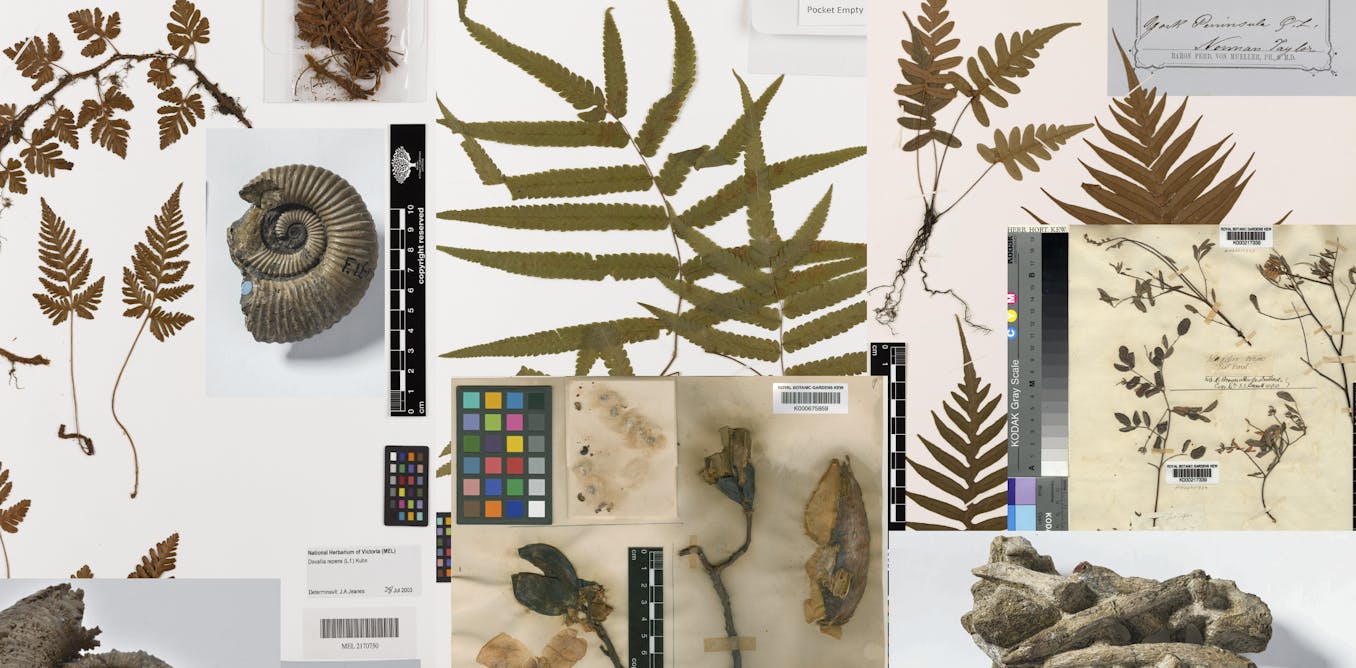



No comments:
Post a Comment